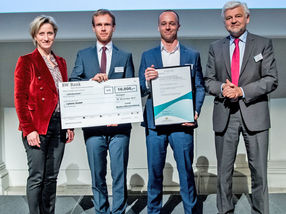EMA and heads of national competent authorities discuss consequences of Brexit
Key principles and working methodology established
The European Medicines Agency (EMA) organised an information meeting yesterday with members of its Management Board and heads of the National Competent Authorities (NCAs) of the EU/EEA Member States. The goal was to start discussing how the work related to the evaluation and monitoring of medicines will be shared between Member States in view of the United Kingdom’s (UK) withdrawal from the European Union.
Although negotiations on the terms of the UK's departure have not yet officially commenced and one cannot prejudge their outcome, work will now start on the basis of the scenario that foresees that the UK will no longer participate in the work of EMA and the European medicines regulatory system as of 30 March 2019.
General principles for workload distribution will include:
- ensuring business continuity;
- maintaining the quality and robustness of the scientific assessment;
- continuing to comply with legal timelines;
- ensuring knowledge retention, either by building on existing knowledge, or through knowledge transfer;
- assuring an easy implementation and medium- and long-term sustainability.
It is expected that all NCAs will contribute to EMA activities as per the capacity and capability of each authority, to ensure an optimised and robust allocation of the workload across the network.
The envisaged working methodology will include a mapping of current and future capacity and expertise in the network and the identification of potential gaps. This could help the network to increase its capacity in selected areas, and would be supported with enhanced training opportunities.
Based on the general principles, EMA, its scientific committees and working parties, together with the NCAs, will now assess the different options for workload distribution. A follow-up meeting will take place on 5 July 2017.
Other news from the department politics & laws

Get the life science industry in your inbox
By submitting this form you agree that LUMITOS AG will send you the newsletter(s) selected above by email. Your data will not be passed on to third parties. Your data will be stored and processed in accordance with our data protection regulations. LUMITOS may contact you by email for the purpose of advertising or market and opinion surveys. You can revoke your consent at any time without giving reasons to LUMITOS AG, Ernst-Augustin-Str. 2, 12489 Berlin, Germany or by e-mail at revoke@lumitos.com with effect for the future. In addition, each email contains a link to unsubscribe from the corresponding newsletter.













































